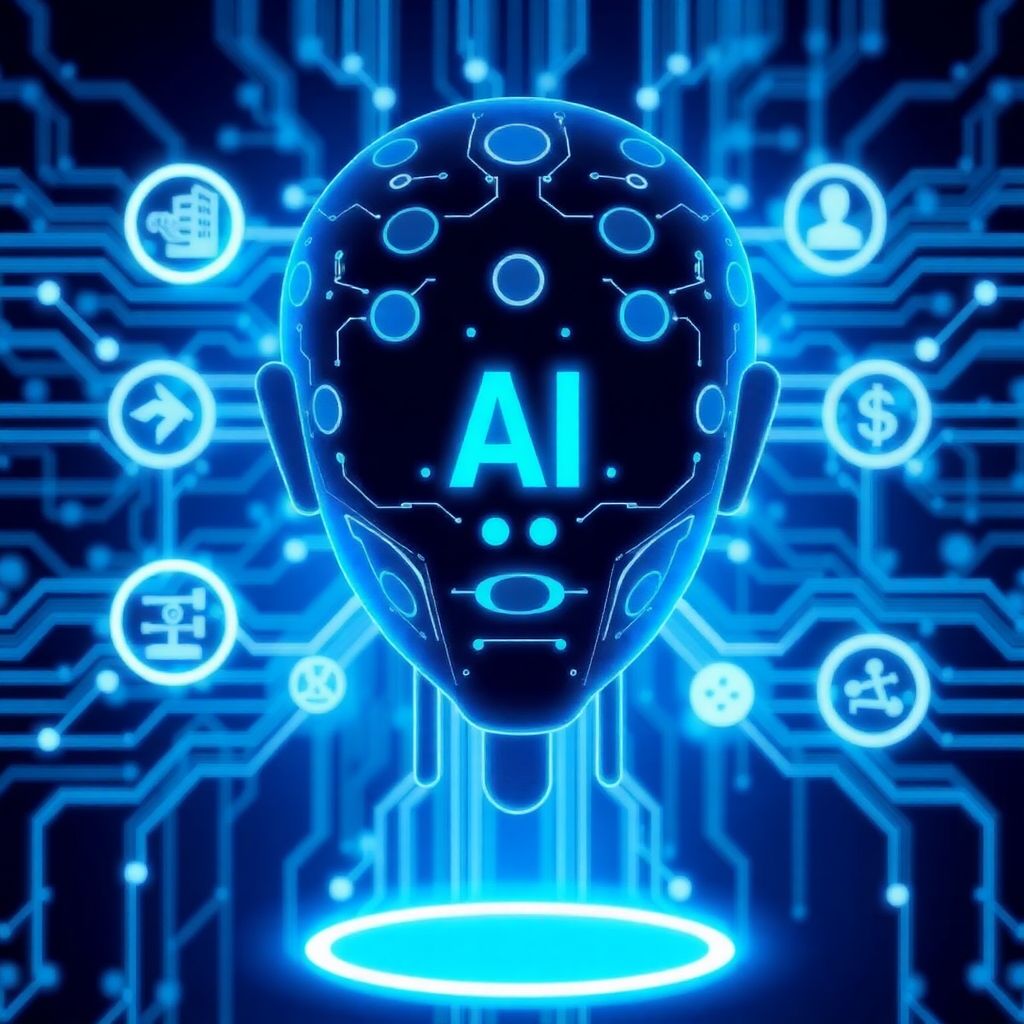Understanding Artificial Intelligence
Artificial Intelligence (AI) is a rapidly evolving field of computer science that focuses on creating machines capable of mimicking human intelligence. These intelligent systems can analyze data, recognize patterns, solve problems, and make decisions with minimal human intervention. AI is an umbrella term that includes machine learning, deep learning, natural language processing, robotics, and expert systems.
History and Evolution of AI
The concept of AI dates back to ancient times, but modern Artificial Intelligence research began in the 1950s with pioneers such as Alan Turing, John McCarthy, and Marvin Minsky. Over the decades, has evolved through various stages:
- 1950s-1970s: Early research in symbolic Artificial Intelligence and rule-based systems.
- 1980s-1990s: Introduction of neural networks and expert systems.
- 2000s-present: Rapid advancements in deep learning, big data, and AI-powered applications.
Types of Artificial Intelligence
Artificial Intelligence can be categorized into three main types based on its capabilities:

1. Narrow AI (Weak Artificial Intelligence)
- Designed for specific tasks like voice assistants (e.g., Siri, Alexa), recommendation systems, and image recognition.
- Cannot perform tasks beyond their predefined functions.
2. General AI (Strong Artificial Intelligence)
- Possesses human-like intelligence with the ability to learn and apply knowledge across different domains.
- Still theoretical and not yet achieved in reality.
3. Super AI
- A futuristic concept where AI surpasses human intelligence.
- Capable of self-awareness, problem-solving, and independent decision-making.
Key Components of Artificial Intelligence
AI systems rely on several fundamental components to function effectively:
1. Machine Learning (ML)
Machine Learning is a subset of AI that allows computers to learn from data without being explicitly programmed. ML algorithms improve their performance over time as they process more information.
2. Deep Learning
Deep Learning is an advanced branch of ML that uses artificial neural networks to mimic human brain functions. It is widely used in image recognition, speech processing, and autonomous systems.
3. Natural Language Processing (NLP)
NLP enables machines to understand, interpret, and generate human language. Examples include chatbots, translation software, and text-to-speech applications.
4. Computer Vision
Computer Vision allows AI to analyze and interpret visual data from images and videos. It is used in facial recognition, medical diagnostics, and self-driving cars.
5. Robotics
Robotics combines Artificial Intelligencewith mechanical systems to create autonomous machines capable of performing complex tasks, such as industrial automation and robotic surgery.
Applications of Artificial Intelligence
AI has transformed numerous industries with innovative applications:
1. Healthcare
- AI-driven medical diagnostics and imaging.
- Virtual health assistants and personalized medicine.
- Drug discovery and development.
2. Finance
- Fraud detection and risk assessment.
- Algorithmic trading and robo-advisors.
- Customer service chatbots and automation.
3. Automotive
- Self-driving cars and advanced driver-assistance systems (ADAS).
- Predictive maintenance and smart navigation.
4. E-commerce
- Personalized recommendations and targeted advertising.
- AI-powered chatbots and customer support.
- Inventory and supply chain optimization.
5. Education
- AI-driven tutoring and adaptive learning platforms.
- Automated grading and assessment.
6. Entertainment and Media
- AI-generated content and deepfake technology.
- Automated video and audio editing.
- Music and art creation using Artificial Intelligence algorithms.
Ethical and Societal Impacts of AI
As AI continues to advance, it raises several ethical and societal concerns:
- Job displacement due to automation.
- Bias in AI algorithms leading to discrimination.
- Privacy concerns in data collection and surveillance.
- Artificial Intelligenceregulation and governance to ensure responsible usage.
Future of Artificial Intelligence
The future of AI holds immense possibilities, with ongoing research in:
- Artificial General Intelligence (AGI) capable of human-like reasoning.
- Artificial Intelligence in space exploration for autonomous planetary missions.
- Artificial Intelligence -powered climate change solutions to optimize energy consumption.
- Human-Artificial Intelligence collaboration for enhancing creativity and productivity.

